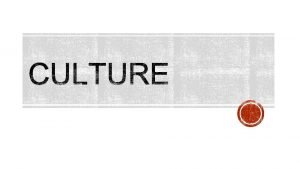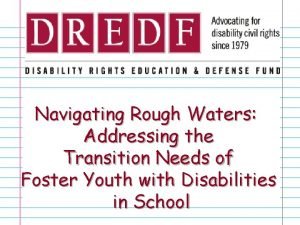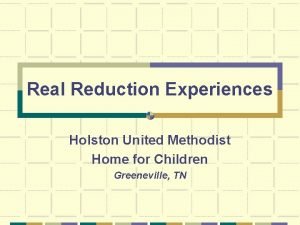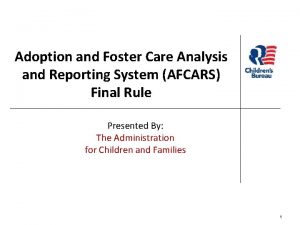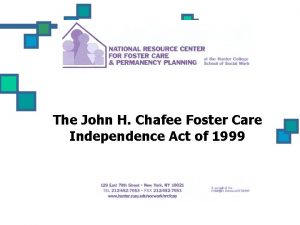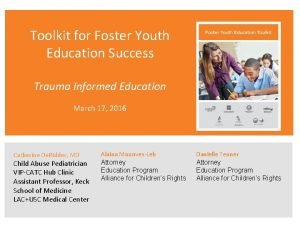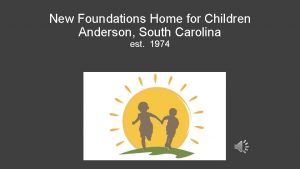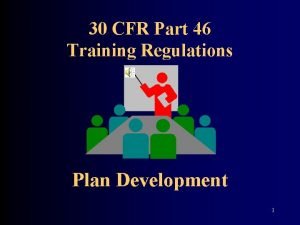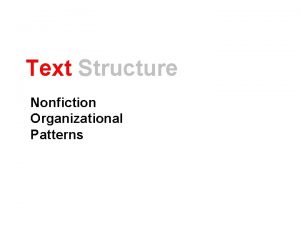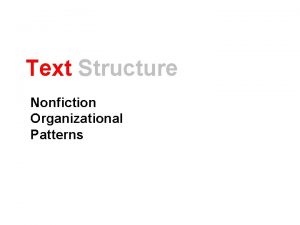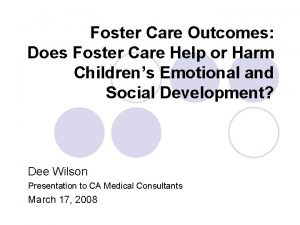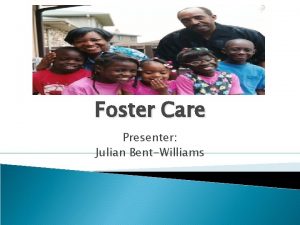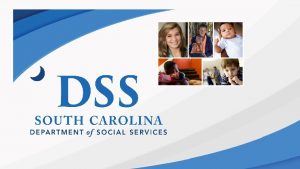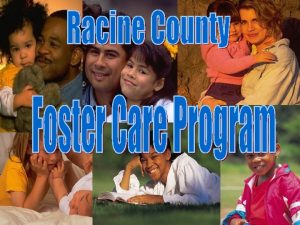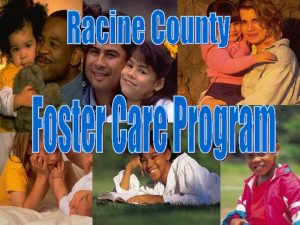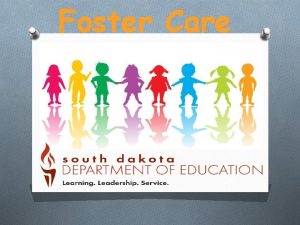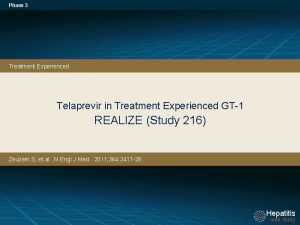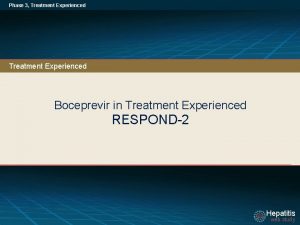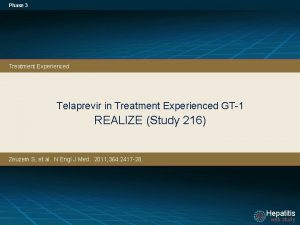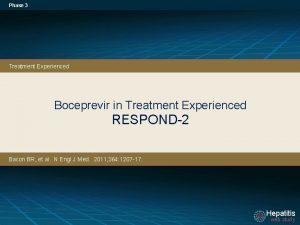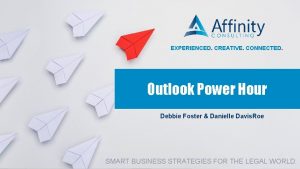Supporting students who have experienced foster care Professional
















- Slides: 16

Supporting students who have experienced foster care: Professional Identity Development Presented by Jamie Bennett, MSW Training Specialist Center for Fostering Success Western Michigan University

Goals and Introduction • Coaching with the Fostering Success Coach Model • Promoting professional identity development – Cultural humility – Exposure gaps and skill development – Holistic Approach – Belonging and fit • Best Practices from the field

Identity What is identity? How do we develop our identity? What characterizes professional identity?

Fostering Success Coach Model

Support Recommendation #1 Practice Cultural Humility • • • Humility vs. competence Intersectionality of cultural characteristics Removes “knowing” Asks supportive adult to “learn the student” Integration – Foster care experience results in dis-integration of identity

Support Recommendation #1 Practice Cultural Humility • Research suggests that cultural humility is achieved by practicing: • Active Listening • Empathy – Perspective taking – Non-judgement • Curiosity

Exposure Gaps t n e D l l i k d. S n a e g d e l ow Kn Consistent housing Safe environment Consistent parenting Growth opportunities e v e m p lo Opportunity to fail safely Consistent schooling • Problem solving • Critical thinking • Asking for help • Coping strategies • Communication skills • Relationship skills • Identity Dev.

Exposure Gaps Foster Care Experience Failing means danger Multiple school Changes Unsafe environment/ Homelessness trauma Growth seen as dysfunction/ mental illness Multiple placements Disrupted relationships • Problem solving • Critical thinking • Asking for help • Coping strategies • Communication skills • Relationship skills • Identity Dev.

Exposure Gaps Foster Care Experience Failing means danger Multiple school Changes Unsafe environment/ Homelessness trauma Growth seen as dysfunction/ mental illness Multiple placements Disrupted relationships • Problem solving • Critical thinking • Asking for help • Coping strategies • Communication skills • Relationship skills • Identity Dev.

Support Recommendation #2: Telling doesn’t equal doing • Telling a young adult how to do something does not automatically translate to him/her doing that thing. • Creating experiences, demonstrating and observing skill addresses exposure gaps.

Identity: Who am I? Belonging and Fit • Who am I in relation to the world? – Imposter syndrome and tokenism • Who am I in relation to my relationships? – Living in two different worlds • Who am I to myself? – Moving from one socio-economic class to another

Support Recommendation #3: Normalize and Praise • Spread the word! It is NORMAL to feel like you are different, not good enough or being treated differently when transitioning from care to young adulthood • Reinforce strengths and skills – Take opportunities to reinforce strength by using effective praise • Praise statement • Name the strength • Why is this strength important for the youth’s goals?

Seven Life Domains

Support Recommendation #4: Take a Holistic Viewpoint on Professional Development • Professional Identity includes all aspects of a young adults life – Integration of all life domains

Best Practices in the Field • Career mentors – Provide real experiences in the field of interest • Transition Seminars – Target sessions that address topics such as transportation, employer provided health insurance, buying a house and car, professional dress, etc. • Exposure to various professional settings

QUESTIONS? For more information on the Fostering Success Coach Training: Jamie Bennett, MSW Jamie. bennett@wmich. edu 269 -929 -0993 Wmich. edu/fosteringsuccess/outreach/training
 Ya aburnee arabic
Ya aburnee arabic Do boys and girls share the same internet usage
Do boys and girls share the same internet usage Effects of multiple placements in foster care
Effects of multiple placements in foster care Effects of multiple placements in foster care
Effects of multiple placements in foster care Holston homes foster care
Holston homes foster care Foster care analysis reporting system
Foster care analysis reporting system How foster children
How foster children Trauma informed care for foster youth
Trauma informed care for foster youth New foundations home for child anderson sc
New foundations home for child anderson sc Levels of care primary secondary tertiary quaternary
Levels of care primary secondary tertiary quaternary Dominican professors were hostile to rizal
Dominican professors were hostile to rizal What shape has 12 edges 8 vertices and 6 faces
What shape has 12 edges 8 vertices and 6 faces Self care for students
Self care for students Allows rapid entry of text by experienced users
Allows rapid entry of text by experienced users Newly hired experienced miner training
Newly hired experienced miner training The best pb and j ever text structure
The best pb and j ever text structure Devers experienced the highlight
Devers experienced the highlight
